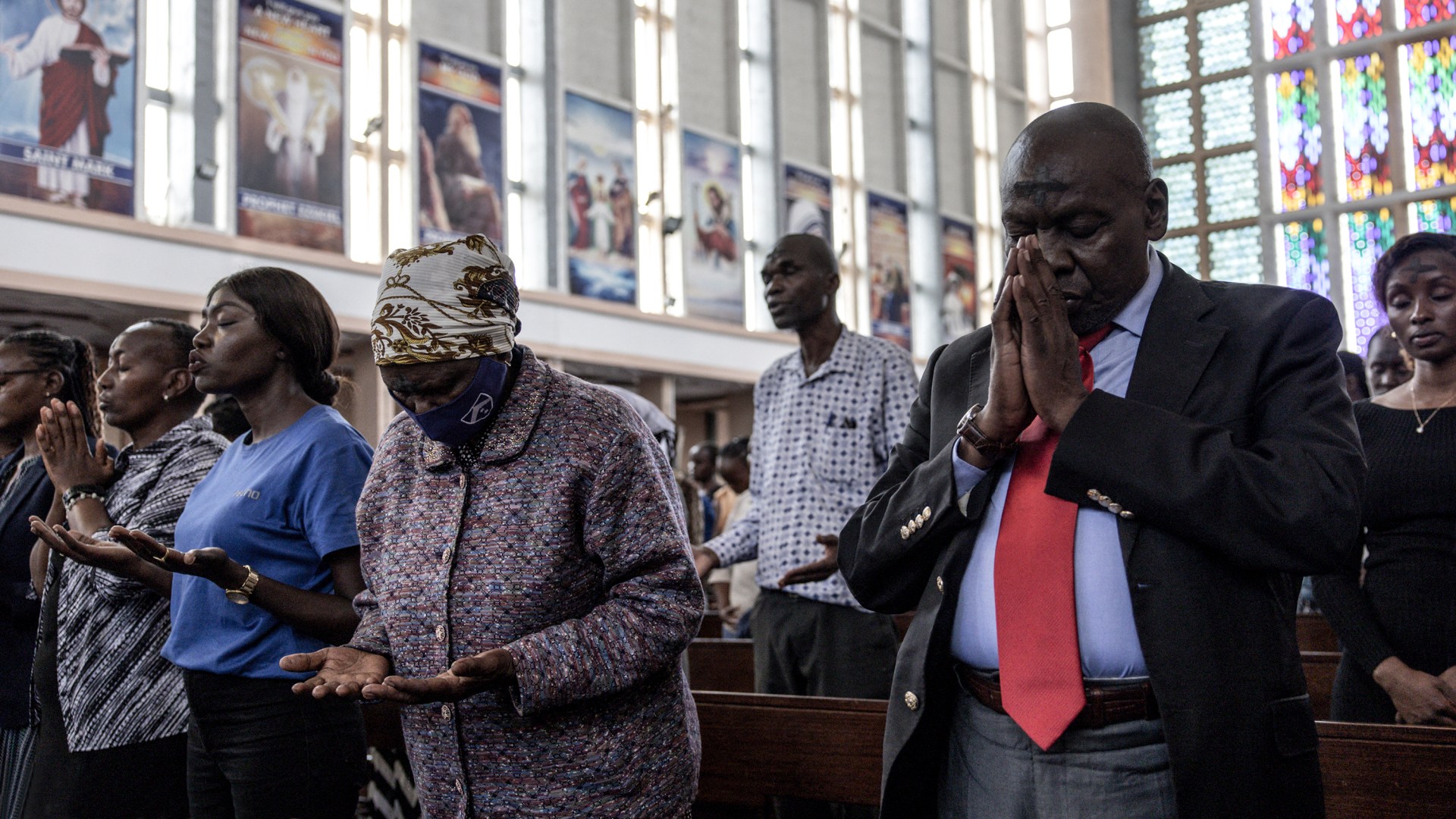When Matthew Okeyo heard in 2023 that a religious sect leader had led hundreds of followers to starve to death in Kenya’s Shakahola Forest, he felt “shocked but not surprised.” Okeyo, who pastors African Inland Church Milimani in Nairobi, Kenya, said unchecked heretical groups have tricked and enslaved many Kenyans. Introducing regulations seemed like a good idea.
But now he and other church leaders oppose a bill the Kenyan government introduced last year to curb religious extremism, and they say it unnecessarily tightens regulations on legitimate religious institutions, including churches.
“I don’t have a problem with regulation,” Okeyo said. “My problem is how it is being done.”
If passed, the Religious Organizations Bill would establish a government commission to oversee churches and to develop a code of conduct. It would also require churches to register with the government, mandate fines and jail time for acts such as promoting politics from the pulpit, and limit proselytizing.
Christian and Muslim leaders have demanded the legislation’s “total withdrawal,” according to the Kenya Broadcasting Corporation, calling it “unconstitutional,” “oppressive,” and “open to abuse.” National Catholic and Protestant groups have also announced their opposition to the bill.
At an October 29 press briefing, Hudson Ndeda—national chairman for the Church and Clergy Association of Kenya—urged President William Ruto to suspend the legislative process for the bill.
“The Constitution is clear that state and religion shall be separate,” Ndeda stated. “We wonder why the government is keen on regulating religious institutions.”
Lawmakers proposed the bill in response to the Shakahola Forest Massacre, where at least 400 people, many of them children, died.
Police eventually arrested the sect’s leader, Paul Mackenzie, and ten others in connection with the deaths and charged Mackenzie with manslaughter, murder, and terrorism.
In May 2023, Ruto appointed a presidential task force to explore regulations preventing religious abuse. The taskforce then informed the drafting of the Religious Organizations Bill.
The Kenyan Senate presented the bill in September 2024, and Ruto’s cabinet approved the draft this July, opening a public participation period through October 22 so concerned citizens could comment. The bill is now headed to its first reading in Parliament. To become law, the draft must undergo three readings in Parliament with opportunity for revision. If it passes, the legislation will then go to Ruto for signing.
In 2025, police have exhumed at least 32 more bodies near Shakahola, raising fears the cult might still be operating, and raided a different sect’s compound, where they found two bodies and rescued 57 people from the cult leader’s control.
Proponents of the bill say its provisions are “critical” to prevent further deaths. In a speech to the UN Human Rights Council, Harrison Mumia—a representative of Humanists International and Atheists in Kenya Society—cited the Shakahola tragedy and urged the Kenyan government to “revisit the Religious Organizations Bill” to regulate religious organizations.
Pentecostal leaders are concerned the bill’s unclear wording could criminalize healing, deliverance practices, and tithe collection. Deliverance Church International, a Pentecostal church with locations across Kenya, argued in a recent letter to Parliament that the new bill will not stop Kenyans from joining dangerous cults.
“Wasn’t Shakahola a consequence of failure to implement existing laws rather than a vacuum in the law?” the letter asked.
David Njiiri, pastor of Kenya Assemblies of God in Nairobi, fears proposed fines in the bill could be abused and says they “need to be reasonable lest it be used by the enemy of the church to press charges against the clergy.”
Penalties for violations—including actions that “promote religious intolerance” or “indoctrinate any person with a religious doctrine”—can include fines up to 10 million shillings ($77,500 USD), imprisonment up to five years, or both.
Njiiri said the draft law “requires thorough scrutiny so as not to end up persecuting preachers rather than solving the intended problems.”
When Parliament presented the bill last year, the Evangelical Alliance of Kenya (EAK), an umbrella organization with a membership of over 700 denominations and churches, acknowledged abuses by heretical groups but argued the bill didn’t address the failures of public officials to properly handle the Shakahola tragedy. The EAK warned the current bill “unjustly limits” freedoms guaranteed under Kenya’s Bill of Rights.
Some also fear the proposed law’s restrictions on youth evangelism will hinder outreach and discipleship, especially among students in schools and universities. The draft bill requires a person to get parental consent before attempting to convert children or offering them religious teachings.
The East Africa Centre for Law and Justice (EACLJ) stated that vague wording in the statute could be subject to interpretation. Section 34 of the bill forbids the use of “misrepresentation, force, undue influence or coercion” in attempts to convert someone to a religion. The section also prohibits “indoctrinat[ing] any person with a religious doctrine.”
These restrictions could leave Christian evangelism vulnerable to lawsuits and limit outreach to children and youth, the EACLJ said.
In a memorandum obtained by CT, the Fellowship of Christian Unions in Nairobi, a parachurch organization that oversees Christian clubs and fellowships for students, asked lawmakers to clarify ambiguous portions of the legislation and revise it to “introduce safeguards that balance parental guidance with a child’s evolving capacity to choose their faith.”
The bill would also require churches and parachurch organizations to register with the government, submit financial reports, pay taxes on any income not spent on charity, and ensure leaders hold certificates or degrees from recognized theological institutions.
Okeyo said the government should withdraw the bill while it holds talks with religious bodies about how they can regulate their own members. He believes the government should work alongside Christian umbrella organizations, rather than impose all regulations itself, to regulate churches.
Okeyo worries the current legislation will create an environment where Christians can’t share the gospel and make disciples, because “if you want to share the gospel with someone, they may ask you to produce your license.”
“Many genuine local churches will lose their mandate to evangelize and disciple others,” Okeyo said.














